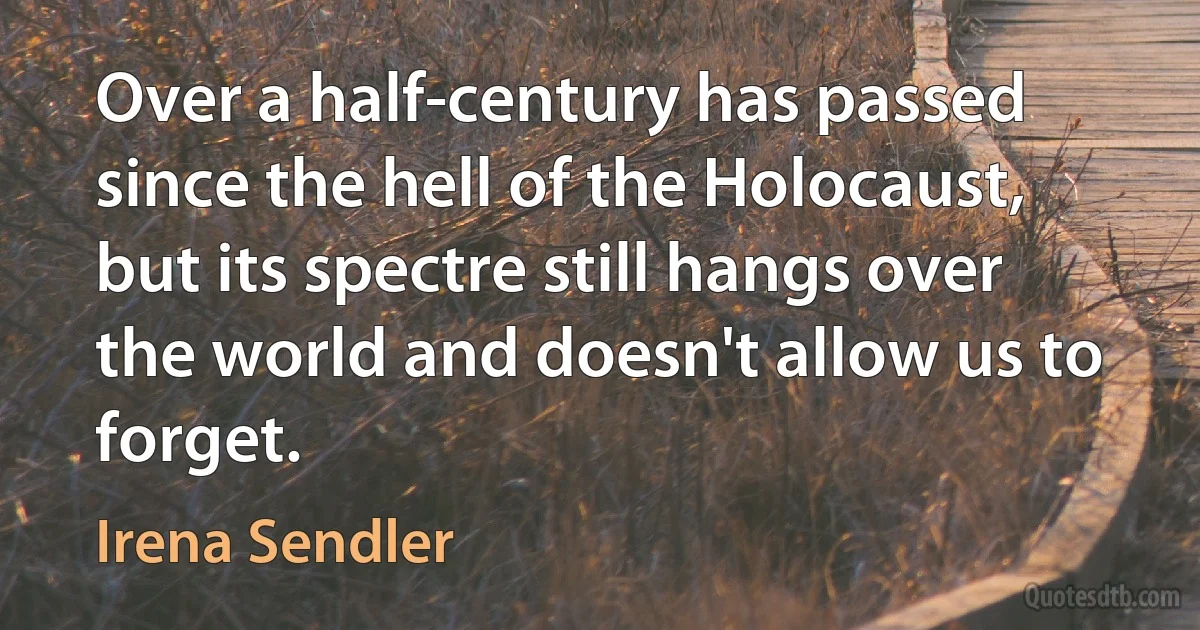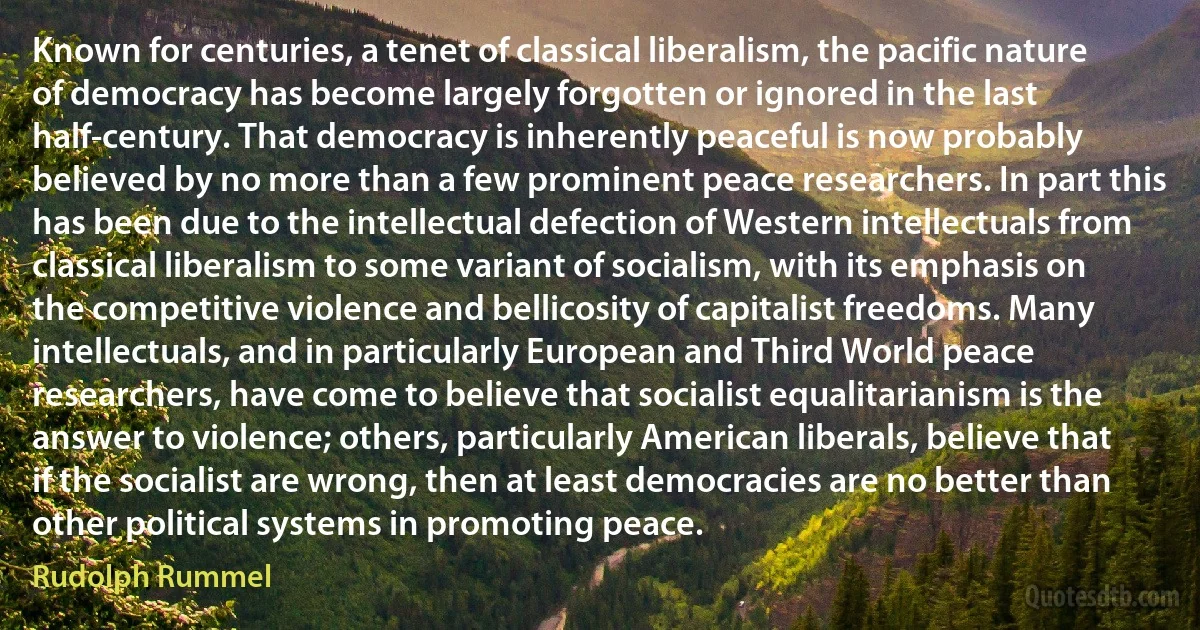Half-century Quotes
We have two distinct types of political organization to take into account; and clearly, too, when their origins are considered, it is impossible to make out that the one is a mere perversion of the other. Therefore when we include both types under a general term like government, we get into logical difficulties; difficulties of which most writers on the subject have been more or less vaguely aware, but which, until within the last half-century, none of them has tried to resolve.

Albert Jay Nock
If you were going to turn to only one economist to understand the problems facing the economy, there is little doubt that the economist would be John Maynard Keynes. Although Keynes died more than a half-century ago, his diagnosis of recessions and depressions remains the foundation of modern macroeconomics. His insights go a long way toward explaining the challenges we now confront.

Greg Mankiw
It is truer today than when Alfred Nobel realized it a half-century ago, that peace cannot be achieved in a vacuum. Peace must be paced by human progress. Peace is no mere matter of men fighting or not fighting. Peace, to have meaning for many who have known only suffering in both peace and war, must be translated into bread or rice, shelter, health, and education, as well as freedom and human dignity - a steadily better life. If peace is to be secure, long-suffering and long-starved, forgotten peoples of the world, the underprivileged and the undernourished, must begin to realize without delay the promise of a new day and a new life.

Ralph Bunche
Two world wars have destroyed in a few years the material and spiritual capital accumulated by centuries of work. The nineteenth century had hoped to turn man, by virtue of education, into a reasoning being: a half-century of ferocity has proved that a cruel, primitive beast still resides in him.

André Maurois
America is the object of their loathing because, for a half-century or more, she has been the most prosperous and creative capitalist society on earth. Ultimately it is liberal democracy - or quite simply liberty itself - that they are eager to destroy, even though they are among its foremost beneficiaries, being free to travel anywhere, anytime in order to hatch their plots. If their diktats were carried out, if frontier barriers were reestablished everywhere, with passports and visas even for tourists, there could have been no Seattle and no Goteborg.

Jean-François Revel
Mind is the great lever of all things; human thought is the process by which human ends are ultimately answered; and the diffusion of knowledge, so astonishing in the last half-century, has rendered innumerable minds, variously gifted by nature, competent to be competitors or fellow-workers on the theatre of intellectual operation.

Daniel Webster
In the last half-century, Americans have increasingly tended to emphasize race and tribe in promoting "diversity,” rather than seeking to strengthen the more tenuous notion of unity with their fellow citizens. We have forgotten that human nature is fond of division and must work at setting aside superficial tribal affinities to unite on the basis of core values and ideas.

Victor Davis Hanson
Arthur Schlesinger, Jr. challenged the underlying premise of prevailing Civil War scholarship. The South, he pointed out, had shown no evidence of a willingness to end slavery; indeed, over time it had become ever more hysterical in its defense. With one eye firmly on the recent past, Schlesinger insisted that a society closed in support of evil could not be appeased, and if it was worth a war to destroy Nazism, surely it was worth one to eradicate slavery. But not until the 1960s, under the impact of the civil rights revolution, did historians en masse repudiate a half-century of Civil War scholarship, concluding that the war resulted from an irreconcilable conflict between two fundamentally different societies, one resting on slavery, the other on free labor. Historians pushed Emancipation to the center of their account of the Civil War, and it has remained there ever since.

Eric Foner
[T]he wall of separation between public and private higher education has been eroding for the last half-century. Funding from public sources now constitutes the bulk of higher-education resources in the United States, whether in the form of government subventions for research and programs, or in the much vaster influx of government-guaranteed student loans. For all realistic purposes, the distinction between public and private higher education has ceased to exist. Further, the vast numbers of young American adults being drawn in to the college and university system (some 20.4 million, up by 25 percent from 2000 alone)-on the assumption that college degrees are virtually a sine qua non of entrance into profitable commerce or lucrative professions-has evaporated what little is left of the pretense that academe constitutes some monastic realm, beyond the orbit of civil society.

Allen C. Guelzo
George Orwell wrote in 1942 at the height of his revulsion from what he regarded as the feeble hypocrisy of English socialist journalism. If he were alive today he would no doubt derive much ironic amusement from the changed position in popular esteem of the Boers in this half-century from that of the gallant little people fighting for their homesteads and way of life to that of the villains of apartheid.

Evelyn Waugh


